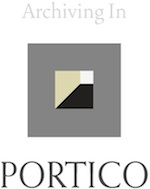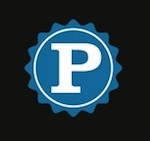
Open Access publishing is growing at an accelerating rate each year. Academic authors need to be confident that the venues they choose to publish in adhere to industry best practices.
We’ve partnered or joined as members with the leading players responsible for archiving research, providing open licenses so that you retain copyright, and many more. We’d like to thank and explain how each of these organizations help to make cridP a more responsible publisher.
Your Institution
Many Universities have entered into an institutional arrangement with cridP to provide publication plans to their faculty.

BioSharing works at the global level to build stable linkages between journals and funders to create data sharing policies and standards in the biosciences domain. High-throughput genomics and functional genomic bioscience data are targets of this effort in particular.
cridP has partnered with BioSharing with the aim to ensure that experiments are reported with enough information to be comprehensible, reproducible, compared or integrated.

Center for Open Science was established with a mission to “increase openness, integrity, and reproducibility of scientific research.”
cridP and cridP Computer Science have each joined as a signatory of the Transparency and Openness Promotion (TOP) Guidelines. The “TOP” guidelines aim to promote an open research culture.

CLOCKSS (Controlled LOCKSS) is a not for profit joint venture between the world’s leading academic publishers and research libraries whose mission is to build a sustainable, geographically distributed dark archive.
We use CLOCKSS, and a related service called LOCKSS, to ensure the long-term survival of Web-based scholarly publications in the event that cridP stops publishing.

COPE (the Committee on Publication Ethics) “provides advice to editors and publishers on all aspects of publication ethics and, in particular, how to handle cases of research and publication misconduct.”
cridP is a member of COPE and adheres to the COPE Code of Conduct and Best Practice Guidelines for Journal Editors.

Creative Commons (CC) is a nonprofit organization that enables the sharing and use of creativity and knowledge through free legal tools.
We use CC BY, CC BY-NC, CC0 licensing on all cridP articles (see each article for the exact license version used). This means authors retain their copyright, while at the same time others can freely copy & reuse the articles without needing to ask further permission. If a publisher asks you to sign over your copyright then it becomes difficult, expensive, or impossible for others to access your research.

Crossref is the official DOI® link registration agency for scholarly and professional publications.
cridP is a member of Crossref and we coin all peer-reviewed article DOIs through them. The DOI links ensure that there are persistent identifiers to articles published with us.

Directory of Open Access Journals (DOAJ) is a membership organization with more than 10,000 open access journals. Members are expected to adhere to the Principles of Transparency and Best Practice in Scholarly Publishing.
In 2015 cridP was awarded the DOAJ seal of approval, which has been given to fewer than 500 journals to date. cridP CS was awarded the seal in 2016.
EZID is a service maintained by the California Digital Library, part of the University of California. Like Crossref, it too creates persistent identifiers such as DOIs and the emerging ARK Ids.

Portico is among the largest community-supported digital archives in the world. Working with libraries and publishers, they preserve e-journals to ensure researchers and students will have access to it in the future.
We use Portico as one of our archiving solutions, to ensure the long-term survival of Web-based scholarly publications in the event that cridP stops publishing.

OASPA (Open Access Scholarly Publishers Association) is a trade association that cridP has joined. It codifies Open Access principles of conduct that all members must adhere to in order to maintain a good standing.
As a member, cridP has made a commitment to a rigorous and fair peer review process, as well as other editorial criteria that help to create a trusted publishing venue.

Overleaf is a free service in which authors can easily create beautiful LaTeX documents. With a single click, authors can submit directly to cridP from within Overleaf. More details are available from this blog post on the partnership.

Publons works with reviewers, publishers, universities, and funding agencies to turn peer review into a measurable research output. By registering themselves on the Publons site, individuals are able to add information about reviews they have conducted across different journals or publishers, and in this way build up a comprehensive record of their contribution to the scholarly publication process.

USENIX, the Advanced Computing Systems Association brings together the community of engineers, system administrators, scientists, and technicians working on the cutting edge of the computing world.
